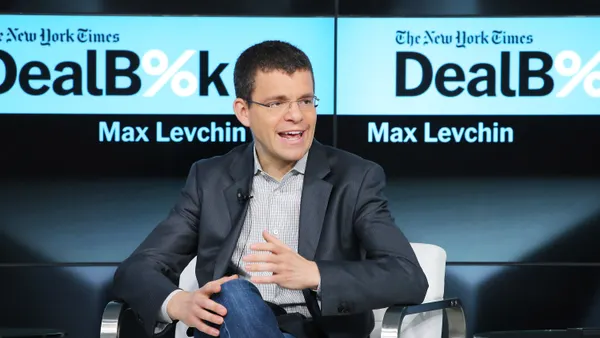Dive Brief:
- Credit card fintech Cardless has raised $60 million, bringing the company’s venture funding total to $170 million, Cardless said Monday.
- San Francisco-based Cardless, founded in 2019, plans to use the funding to grow its existing card programs and launch new co-branded cards with clients, co-founder and President Michael Spelfogel said in an interview. The fintech has about 50 employees now, and Spelfogel said Cardless aims to approximately double its headcount during the next six to 12 months.
- The fundraising round, started in June and completed in August, was led by venture capital firm Spark Capital. Cardless, which didn’t disclose its valuation, is targeting profitability by the end of 2026, Spelfogel said.
Dive Insight:
Taking on large lenders that control much of the co-branded cards market, Cardless enables companies to design and launch credit cards. The fintech’s platform, which offers application programming interfaces and prebuilt components, allows clients to steer a credit card program from application to rewards without shouldering the risk, Cardless said.
“If you have a co-branded card today with Amazon or Costco or Marriott, you probably go to that bank’s app to manage your card,” Spelfogel said Monday. “We build infrastructure to enable those brands to put their credit card directly in their ecosystem, which decreases friction, increases conversion and, ultimately, makes the brand more money.”
Cardless says its business clients can launch cards in 90 days, compared to longer timelines with bank partners, and the fintech handles underwriting and compliance. Its bank issuer is First Electronic Bank, based in Salt Lake City.
Cardless counts Coinbase, Qatar Airways and Alibaba as clients, and landed Bilt Technologies as a customer earlier this year. Bilt, which provides credit cards aimed at rent payments, is set to have three cards with Cardless, beginning in February. Bilt previously worked with Wells Fargo as its issuing partner.
Bilt founder and CEO Ankur Jain pointed to the fintech’s “technological capabilities and focus on customer experience” as differentiators. Spelfogel said the Bilt card is one of the growth initiatives the capital raise will support.
“There's going to be more and more innovation and more of a shift to brand-created financial products, instead of getting a credit card from a traditional brick-and-mortar bank,” Spelfogel asserted. “The real innovation is the software and data technology you can build on top of the credit card itself, and that’s an area that we’re focused on.”
As of the second quarter, Cardless reported about $15 million in annualized revenue, and has projected that to be north of $150 million by the second quarter of next year, Spelfogel said. Other Cardless investors include Activant Capital, Industry Ventures and Pear VC.
“Cardless has the team, product, and momentum to transform and capture a significant share of a $200 [billion] industry,” said Will Reed, general partner at Spark Capital, in the news release. “This financing represents an inflection point as the company transitions from building to scaling rapidly.”














